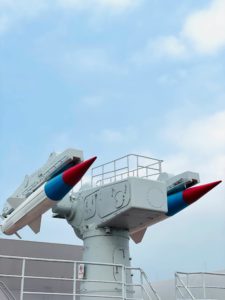Tesla Warns Trump Administration It Is Exposed to Retaliatory Tariffs, FT Reports

Tesla has reportedly warned the Trump administration that the electric vehicle (EV) manufacturer is vulnerable to retaliatory tariffs if the U.S. imposes additional trade restrictions on Chinese imports, according to a report by the Financial Times. The company’s concerns highlight the potential risks faced by U.S. businesses as trade tensions between the two economic powers escalate.
Tesla’s Exposure to Tariffs
Tesla, which operates a major manufacturing plant in Shanghai, China, has expressed fears that any new tariffs imposed by the U.S. could prompt China to retaliate, potentially targeting American-made vehicles or components. The company’s Shanghai Gigafactory is crucial to its global supply chain, producing vehicles not only for the Chinese market but also for export to Europe and other regions.
In a submission to the U.S. Trade Representative (USTR), Tesla reportedly emphasized that its operations rely heavily on Chinese suppliers for critical components, such as batteries and electronics. The company warned that retaliatory tariffs could disrupt its supply chain, increase production costs, and ultimately harm its competitiveness in the global EV market.
Broader Implications for U.S. Automakers
Tesla’s warning reflects broader concerns within the U.S. automotive industry about the impact of escalating trade tensions. Many automakers depend on Chinese suppliers for parts and materials, and any disruption to this supply chain could have significant consequences for production and sales.
The Trump administration has been considering additional tariffs on Chinese imports as part of its ongoing efforts to address trade imbalances and protect U.S. industries. However, critics argue that such measures could backfire, leading to higher costs for American businesses and consumers.
China’s Potential Response
China has a history of responding to U.S. tariffs with countermeasures of its own. In the past, Beijing has targeted American agricultural products, automobiles, and other goods in retaliation for U.S. trade actions. If the Trump administration moves forward with new tariffs, it is likely that China will once again impose retaliatory duties, potentially focusing on industries where the U.S. has a significant presence, such as automotive and technology.
Tesla’s Strategic Position
Tesla’s reliance on Chinese manufacturing and supply chains underscores the complexities of global trade in the EV industry. The company has invested heavily in its Shanghai facility, which has become a key part of its strategy to dominate the global EV market. Any disruption to its operations in China could have far-reaching implications for Tesla’s growth and profitability.
At the same time, Tesla’s warning highlights the challenges faced by U.S. companies operating in a highly interconnected global economy. As trade tensions persist, businesses must navigate a complex landscape of tariffs, supply chain risks, and geopolitical uncertainties.
Looking Ahead
The Trump administration has yet to make a final decision on whether to impose additional tariffs on Chinese imports. However, Tesla’s submission to the USTR underscores the potential risks for U.S. businesses if trade tensions continue to escalate.
As the situation unfolds, Tesla and other automakers will be closely monitoring developments and preparing for potential disruptions. The outcome of these trade negotiations could have significant implications for the future of the U.S. automotive industry and the broader global economy.
In the meantime, Tesla’s warning serves as a reminder of the delicate balance between protecting domestic industries and maintaining the stability of global supply chains. As trade tensions persist, businesses and policymakers alike will need to carefully consider the potential consequences of their actions.




